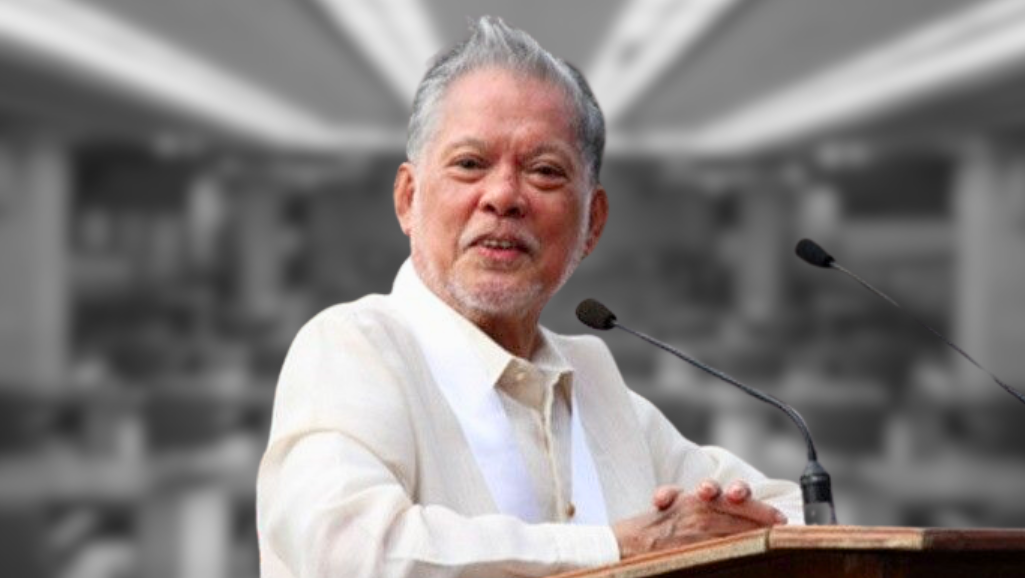
Rene Saguisag had a way with words that appealed to both the high brow and the masa. Yet he never used this to smooth-talk his way as traditional politicians do, but to allure the Filipino to have a romance with the law. He was an anti-politician politician, as a former senate colleague had eulogized him.
Eulogizing Saguisag is like critiquing many of today’s senators who have no business sitting in the senate.
When asked his reaction to the Supreme Court verdict on Rodrigo Duterte’s burial of the dictator Ferdinand Marcos, this was what he said: “We are burying our ideals and our principles. If someone is buried there who was found by the Supreme Court to be a kleptocrat in 2003 and a gross human rights violator as decided by Congress – that’s why we are compensating the victims – we should rename it Libingan ng mga Mandarambong at mga Berdugo, LMB.”
Told that the Supreme Court is the final arbiter of all legal issues, he compared it to the Supreme Court under the dictator Marcos. “That was (also) our experience under the Marcos Supreme Court. In memory now, the people reject the Marcosian Supreme Court. It is not being talked about in a favorable and flattering manner.”
He likened the Duterte regime to be a déjà vu of the Marcos regime. “We are going through what we went through from 1978 to 1986. So many people getting killed, thousands of human rights victims. If this were a savagery-civilization-decay cycle, we are decaying.” Saguisag called Duterte’s extrajudicial killings as a “private population program, on which we are simply fated never to understand each other,” because like the Marcos martial law, “it did not believe in due process either.”
After attending one of the hearings at the Muntinlupa Regional Trial Court Branch 205, Saguisag was asked about the incarceration of Leila de Lima for trumped-up charges instigated by Duterte. “It is the looming mistrial of the century,” saying Duterte’s oft-repeated statements prejudging the guilt of De Lima can have severe effects on the prosecution, the witnesses, the judges.
Unlike so many of our politicians of today whose partialities are dependent on presidential largesse, Saguisag was no lapdog of Cory Aquino whose rise to power brought him to the senate. In September 1991, Cory met with the senators in Malacañang, asking them one thing: to vote for the retention of the US military bases. Saguisag’s reply to Cory: “Please ask us another. And Cory accepted graciously,” he recalled.
Saguisag went on to become part of the Magnificent 12 of history who voted against the US military bases in the Philippines. If Saguisag were still a senator today, it is certain he would not be a lackey of Duterte and his pivot to China. That was because he was beholden to no one. Saguisag had a very sharp discipline of the law, but also a complete absence of ego. We cannot say the same thing of today’s legislators who make a mockery of the independence of Congress.
Saguisag was a pillar of MABINI, the Movement of Attorneys for Brotherhood, Integrity and Nationalism Inc. (MABINI) which opposed the Marcos dictatorship and lawyered pro bono for many of those persecuted. Later, in his typical witty fashion, he would say that MABINI has become Ma-Binay, biased for the Binay dynasty of Makati. Yet he remained friends with former vice president Jejomar Binay who was a founder of MABINI. Such was the Saguisag sarcasm without cuss or diatribes.
How did he evade corruption while he was in the Cory cabinet and when he had served in the senate from 1987 to 1992? Ironically, he tells the story to a journalist in 2016 who became part of the Duterte cabinet and who disgraced the office of public servant by copying his boss’s lecherous invectives. Where is that disgraceful man today? He is working today for the Red Chinese Communist Party’s Global TV.
Saguisag did not need corruption money. There never was payback time when he became senator. “I did not spend a single centavo of money. I was elected by the Edsa euphoria. People were asking what they could do for the country, not what the country could do for them.”
“In my first weeks in the cabinet, I would receive calls. The caller would say: ‘Minister, if you got us a permit to import sardines, 3 million up front (3 million on arrival).’ And I would reply: ‘Sorry, Mr. Marcos does not work here anymore.”
“In the senate, my take home pay was P14,612.50. A taipan offered 50 thousand pesos a month, no receipt, cash. I just told him ‘Just bring your business elsewhere.’ This was not what we fought for when we struggled against the dictatorship. We wanted to bring back the glory days of our youth, when the Philippines could be a country we could be proud of, a country with delicadeza, with palabra de honor.”
“I would not want to leave this world in a worse shape than when I entered it.”
Rene Saguisag shall not pass this way again, but he leaves us a legacy that is bright and teaches us the way to hope.
